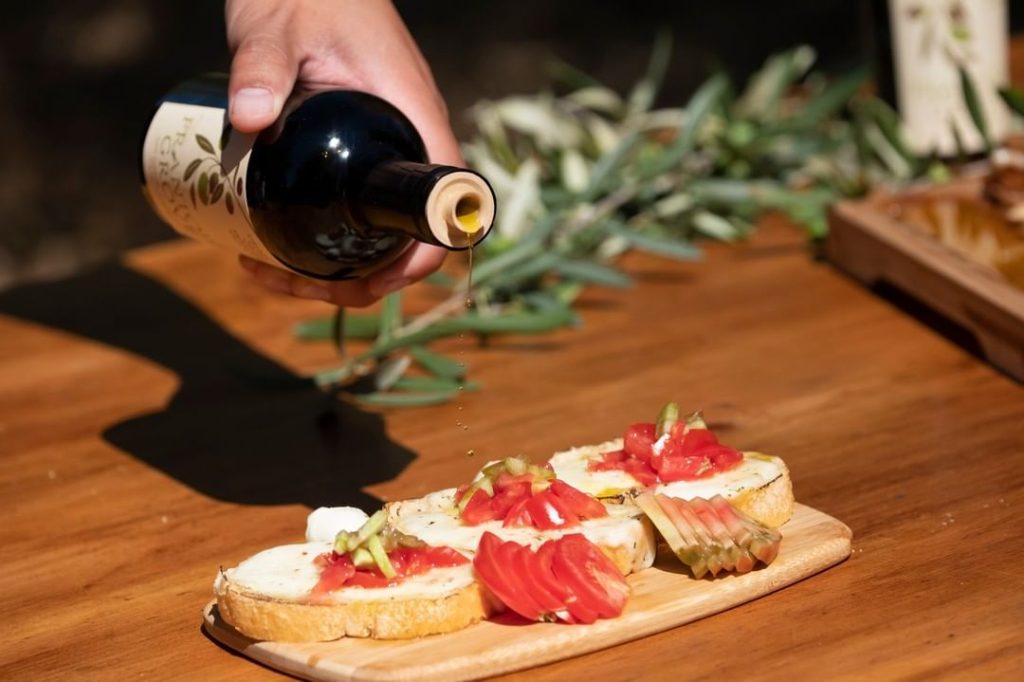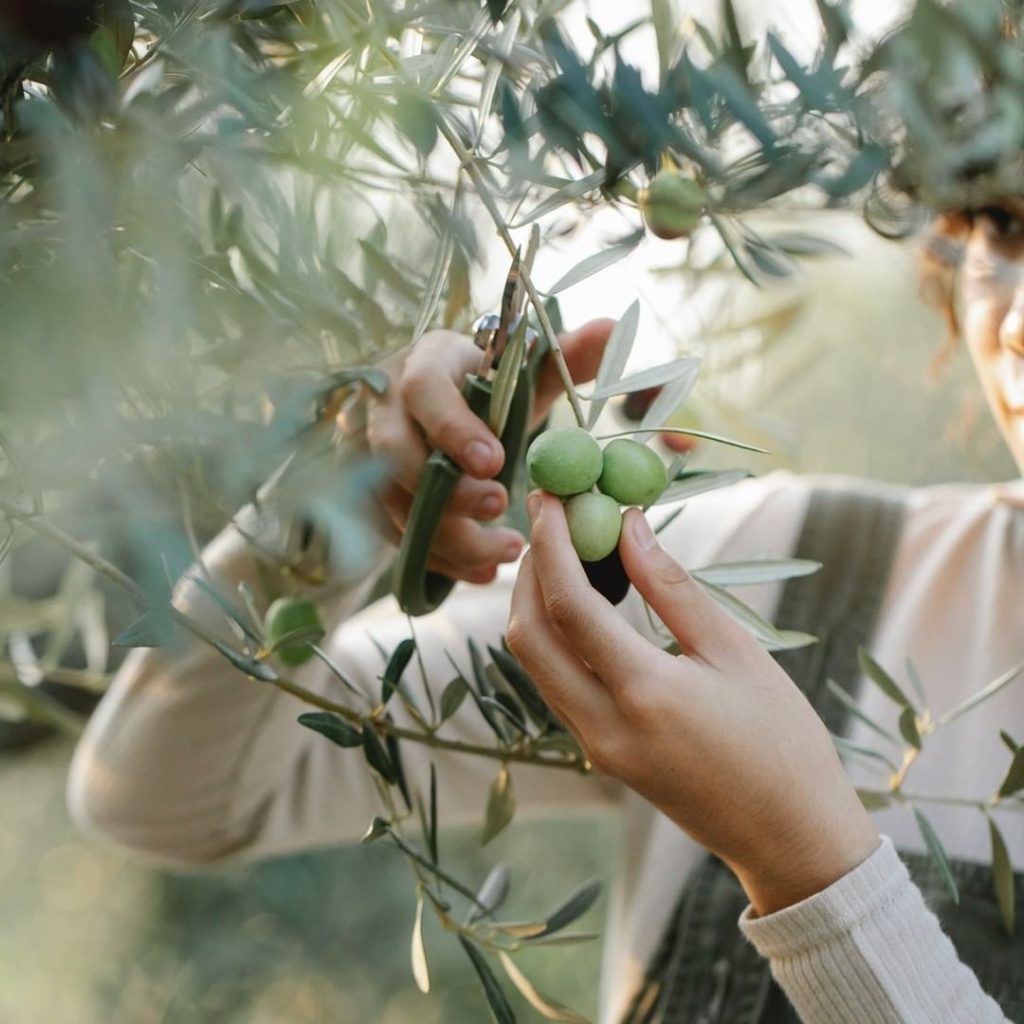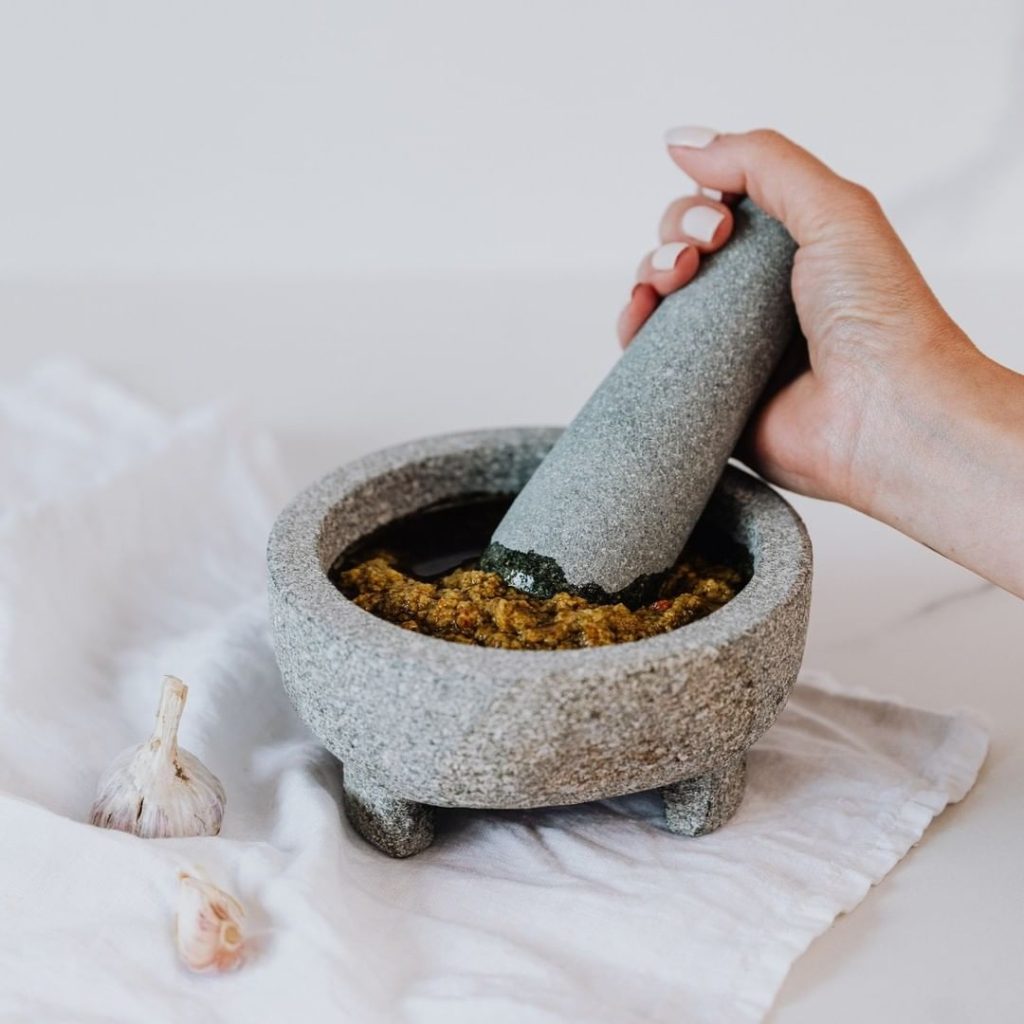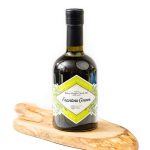
Something very special is taking place in San Martin, California. In an olive orchard called Frantoio Grove there is a team of dedicated farmers hand-picking olives and creating incredible, sustainable extra virgin olive oil. Each bottle is the result of meticulous regenerative agriculture and a devotion to the ecosystem, and we have a whole collection of them right here on our Deli shelves!
The Story of Frantoio Grove

The origin of Frantoio Grove begins almost 20 years ago when Jeff Martin, a 5th generation Californian farmer, planted olives. Jeff’s family had grown grapes in Yolo and Napa since 1870, and was growing grapes in Sonoma County at Tobylane Vineyards when he decided to branch out, so to speak, to grow olives. Most oil produced in California is made with old growth canning olives like Mission and Sevillano converted to oil production, or modern varieties like Arbequina and Arbosana that are grown in high densities. Both of these methods create a buttery, mellow olive oil. Jeff saw an opportunity to stick out from the crowd. “The most interesting oils to us are made from the Tuscan cultivars,” Jeff says. “These oils tend to be more pungent, peppery and, to us, more interesting.” After a lot of research and a lot of taste testing, he decided to plant Frantoio olives, a cultivar found in Tuscany. They put in about 3500 trees that first year. As is the way with olive trees, it took a good five years to get enough harvest to press into oil—2010 was the first meaningful pressing. Thus, Frantoio Grove was born! In 2017 they were officially certified organic by California Certified Organic Farmers (CCOF).
6th generation farmer Patrick Martin has spent time on this orchard since his high school years, before Frantoio Grove was even established. Up until a few years ago, his calling was coffee roasting. He returned to the Grove in 2020 — a year that produced no harvest due to weather. The “standard model” no longer held the solution, so they looked into farmers working on marginal soil or in areas with more extreme climates who employed regenerative farming and biologically intensive management. These farmers saw a return to normal yields AND improvements in the quality of their crops! They decided to attend school and learn how to build this resilience to climate change in their trees, both to return to normal crop yield and to increase the flavor and nutritional density of their olive oil. Restoring soil microbiome, increasing soil organic matter, and teaching the trees to get nutrition from soil biology instead of soluble nutrients. The use of biocides, even organic ones, can drastically affect the beneficial fungi within the soil, and the fertilizer used to compensate for the biocide can be wildly expensive. Building resilience to pests, disease, and especially abiotic stress — which will become more and more common as the climate changes — through regenerative agriculture is a crucial part of ensuring a future for our environment as well as the nutritional density and flavor of our food!
There are many different factions to regenerative agriculture, from holistic practices such as composting to more technical methods like sap analysis. The root of Frantoio’s crop troubles was a collection of fungal diseases, all of which become harder to prevent as the winters grow longer and wetter, and the summers get hotter and drier. In order to see maximum results in the shortest possible time, Frantoio took several ideas and implemented them all at once. This included multi-species cover cropping, abandoning all tillage equipment, regular sap analysis, growing their own microbes on the farm, among others. They hope to someday get sheep in the orchard as well, which would have a tremendous impact on the growth of grass and carbon levels in the soil.
Last year, Frantoio applied for the Regenerative Organic Alliance program, and is now the first and ONLY regenerative organic certified olive farm and mill!
Frantoio Grove on Our Shelves:

“Like listening to music on an exceptional sound system, it’s really remarkable,” says Ari in his Top 5 weekly newsletter about Frantoio. “Everything about it seems clearer, cleaner, more coherent, and very compelling.” Frantoio Grove has won several awards for their oil in the past decade, including the 2014 and 2018 Good Food Award, the 2020 Gold Medal at Olive Japan, and the 2020 Best in Show at the 2020 California State Fair & Food Festival Olive Oil Competition — among many others. Frantoio Grove olive oil is great on salads, bruschetta, or on a steak fresh off the grill like they do in Tuscany. Pair it with garlic and a Pecorino or ricotta over spaghetti with a generous amount of freshly ground black pepper, and you’ll have a simple and delicious meal.
Frantoio Grove Olive Oil: Exceptionally flavorful,with lots of green grassy notes, some arugula bitterness and a slight heat on the finish. A robust oil high in polyphenol (an antioxidant compound that contributes greatly to the taste, aroma, and color of olive oil as well as health benefits!) that is low on bitterness and astringency but still incredibly expressive. “We were excited to taste the fruits of our labor,” says Jeff, “and we were delighted with the results!” You really CAN taste the difference.
Frantoio Grove Olio Nuovo: Available seasonally right after the harvest. This oil goes straight from the mills into the bottle for some of the freshest unfiltered oil you’ll taste! Best used as a finishing oil within the first 6 months of purchase.. Olio Nuovo is an unfiltered oil that goes straight from the mill to the bottle and is only available for a couple months each year, from the beginning of the harvest in early November through the end of the year. Frantoio recommends using this as a finishing oil, drizzled over leafy greens with lemon, tossed in pasta, or used for dipping fresh baked bread.



